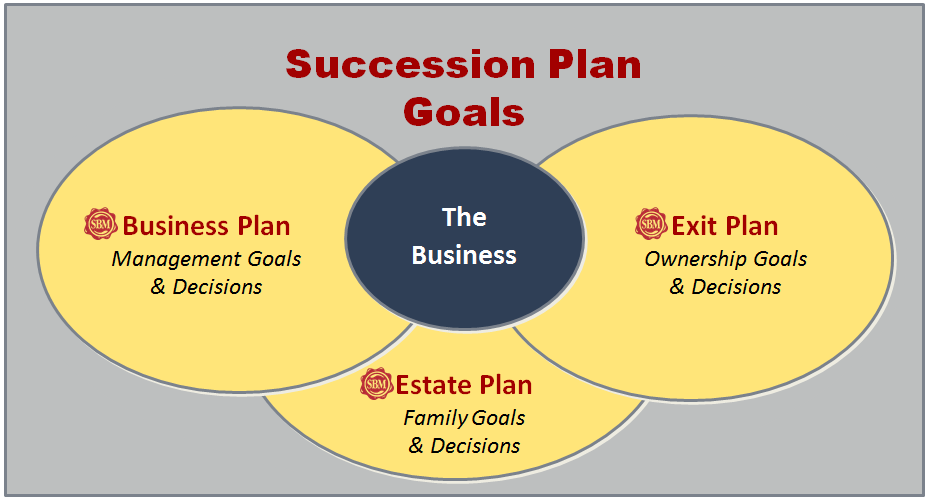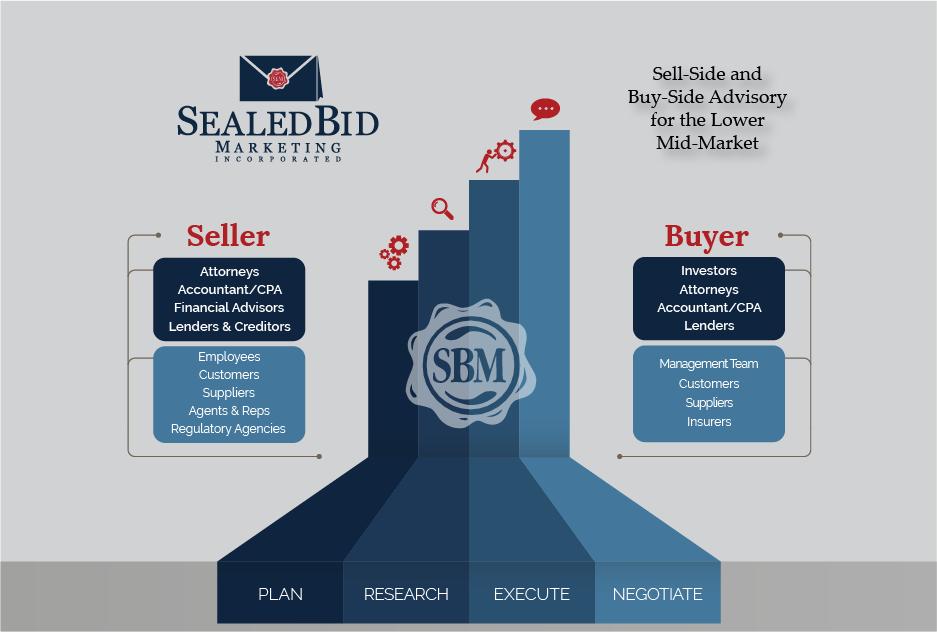As a business owner, your final management decisions may be the most important business decisions you ever have to make! Do you have a clear, well-defined succession plan in place? If not, there are many immediate and future benefits to preparing for the ongoing future of your company…here are some elements to consider:
- Succession planning keeps your company focused: Taking a closer look at the business and its needs today as well as into the future can help keep the goals of the company clear and in the forefront of the leaders’ minds.
- Succession planning helps you take a second look at many aspects of your company: It is important to look at all the parts of your company as well as all employees when creating a succession plan. This review could help catch problem areas that you may not have thought about before and pave the way to a smooth transition.
- The future is unknown: Opportunities (and threats) abound and it is impossible to know exactly what can happen that may directly affect your company. To capitalize on the opportunities (while avoiding the threats), it is very important to start a succession plan sooner rather than later.

So What is a Succession Plan?
As defined by M&A Source (www.masource.org), in a succession plan for a privately held business, ownership transfers from exiting owners to active family members, managers or outside shareholders. In a Bloomberg Business article it states that about 40% of U.S. family-owned businesses successfully get passed down to the second generation. Good facilitators are particularly sensitive to estate planning issues, family business dynamics and the need for discretion and trust to make these transactions seamless and successful. Succession planning has many components that include business planning, estate planning and exit planning.
Myths of Succession Planning for Small Businesses
- Succession planning can all be done at once: Succession planning does not happen overnight. A succession plan is an ongoing effort that can always be changed as new opportunities or issues arise. Business owners should address financial, management and estate needs unique to their specific situation on an ongoing basis
- Waiting to create a succession plan won’t hurt: When it comes to succession planning, it is better to be safe than sorry. If you put off creating a succession plan and something unexpected arises, you may not be in a position to pursue an exit opportunity or maximize value of your company.
- Succession planning is only important for big companies: According to Forbes.com, approximately 90 percent of all companies in the U.S. are family-owned/controlled. When a business is small and an employee leaves, it is much more noticeable than if it were a large company. If an employee in a leadership role leaves a small company, it can have significant impact on an unprepared company. Internal and external resource planning is important, specifically for leadership roles in small companies.
How Do You Begin Succession Planning?
- Search for future leaders: Looking at current employees, as well as potential future leaders outside of a company, is important to do in the beginning of succession planning.
- Solidify financial reporting: It is extremely important for existing and future owners to have absolute trust in the company’s managerial reports, financial statements and tax returns. Having reviewed or audited year-end statements by an outside CPA firm can greatly assist in estate planning, appraisals and ultimately maximizing transaction value. Create a timeline: Plan out specific steps for your succession plan. Allow time to implement new systems or to clean up the company’s accounting. Make sure the future leaders of the company are gradually introduced into their roles so there is a smooth transition.
- Follow your succession plan: Don’t just forget about the plan you have made. Plan to revisit the succession plan every once in a while so that you can make sure that everything is on track. To help ensure a smooth transition, all managers, employees and the company as a whole should be clear on the succession plan.
Now that I am Thinking about my Succession Plan, What Comes Next?
Part II of this Spotlight Series is now available; Spotlight: Exit Planning
SealedBid’s Role in Succession Planning
SealedBid is proud to have successfully served clients for over 25 years with M&A Advisory, Recapitalizations, Succession/Exit Planning, Family Transfers and Management/Partner Buy-outs. As a boutique firm, SealedBid engages in a limited number of projects at any given time to ensure we deliver the highest level of senior attention, expert advice and transaction experience to each client. Our experience, knowledge and attention to detail are crucial to successful succession planning.

- SealedBid works closely with business owners through all the steps of a successful succession plan.
- SealedBid helps guide business owners in a Family Transfer.
- SealedBid assists business owners in a Management/Partner Buy-out.
- Ultimately, SealedBid coordinates the due diligence process, secures the necessary financial statements and aids in negotiating the deal structure (adding tremendous value to business owners).
As you begin to develop your succession plan, remember that SealedBid has the experience, knowledge and expertise needed to successfully guide a transaction, family transfer or management/partner buy-out.
If you are interested in learning more about SealedBid, our services or our team, please do not hesitate to contact us at (952) 893-0232. SealedBid will work closely with you, your financial advisor, attorney, accountant and banker from the initial stages of pre-marketing through closing and post-closing.
In closing…remember to write your succession plan long before you need it, so when the time comes to act, the terms and conditions are already defined and agreed to by all parties…

